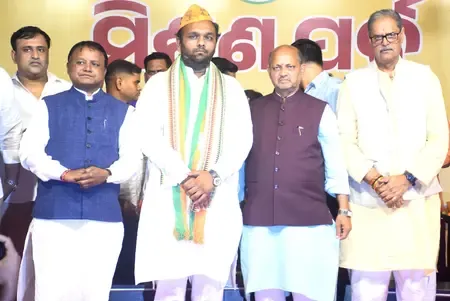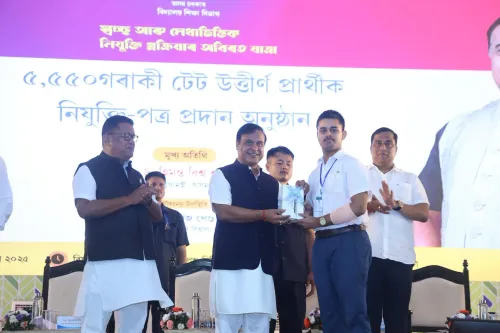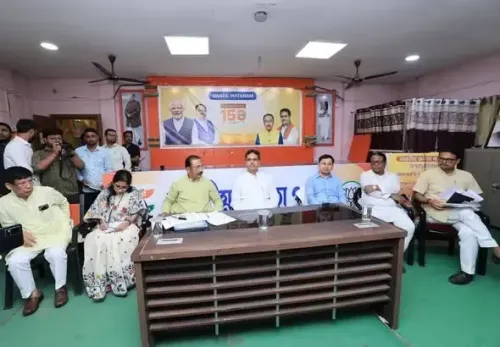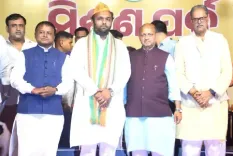R.C. Khuntia: It's Inaccurate to Claim Congress Caters to Muslims or Overlooks Antony Panel's Recommendations
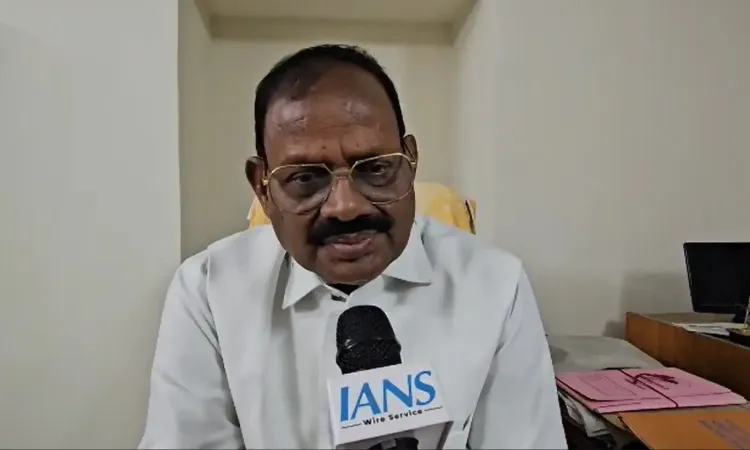
Synopsis
Key Takeaways
- R.C. Khuntia's acknowledgment of Congress' minority vote issues.
- Rejection of claims about anti-Hindu statements for minority appeasement.
- Clarification on Congress' stance regarding community support.
- Importance of a message that Congress represents all communities.
- Impacts of the Antony Committee report on party strategy.
Bhubaneswar, April 7 (NationPress) A decade after the A.K. Antony Committee warned the Congress about the electoral implications of its perceived “minority-appeasement policy”, R.C. Khuntia, a former member of the panel, acknowledged on Monday that although the party maintains a secular image, it has struggled to secure significant minority votes, which tend to split among various parties.
R.C. Khuntia refrained from engaging in the discussion regarding whether the Grand Old Party’s alleged minority-appeasement policy was counterproductive. He stated, “It is incorrect to assert that the Congress occasionally makes anti-Hindu remarks to gain favor with Muslims.”
He emphasized, “Appeasing minorities is not the policy of Congress. We stand with all communities equally,” criticizing opposing political entities and their social media supporters for depicting Congress as a party that favors the minority community or is anti-Hindu.
Khuntia pointed out that “Even a majority of the Muslim vote is not aligned with the Congress,” noting that “The minority vote is fragmented in West Bengal, Uttar Pradesh, Bihar, and Maharashtra.”
He clarified, “The Congress does not endorse or oppose anyone solely to gain votes from a specific community,” underscoring the party's secular values, which avoid caste, creed, or religious-based politics.
Alongside Antony and Khuntia, Mukul Wasnik and Avinash Pandey were also part of the Antony Committee, which delivered its findings to the All India Congress Committee in 2015.
When asked if the committee's recommendations regarding the perceived “minority-appeasement policy” were put into action, Khuntia responded, “These inquiries should be directed to the party President. Our role was solely to provide the report; implementation was not our task.”
He disclosed that the committee's findings were confidential and intended only for the party President and the Committee Working Committee.
Khuntia remarked, “It is misleading to claim that the Antony Committee report was disregarded. The extent to which the report was enacted and its outcomes is another discussion.”
He noted that, to his knowledge, the report's implementation produced favorable results in certain states.
Khuntia acknowledged that the Congress faces challenges when political discourse in specific states is driven by caste or religion.
He stated, “The Congress finds itself at a disadvantage when extremists within the minority community and other parties seek votes through inflammatory remarks.”
Yet, he argued, “If you analyze the last Lok Sabha elections in Uttar Pradesh, you will observe that voters do not consistently vote based on caste and religion.”
Regarding the Congress' alleged closeness to the minority community, Khuntia affirmed, “The Congress is for everyone and will continue to support all communities equally.”
He concurred that a clear message must be conveyed to the public that the Congress is a party for all communities, not just for minorities or any single group, urging media and party leaders to emphasize this point.
According to leaked details from the Antony Committee report, the Congress party's strategy to contest the 2014 Lok Sabha elections on a “secularism versus communalism” platform negatively affected its image, leading to the party being perceived as pro-minority, which bolstered the BJP's electoral success.
He also observed that the minority community harbors skepticism regarding the Congress’ motives.

